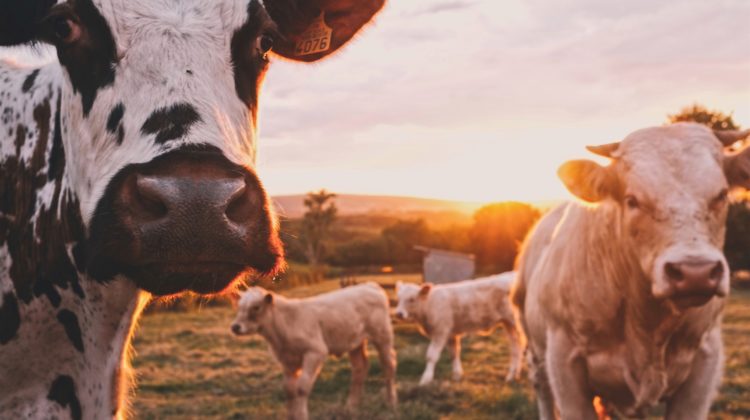
Reduced Emissions Feed Additives (also known as REFA) are new class of feed additives which have the potential to significantly reduce climate damaging emissions from the world’s livestock.
A new field of research, which started when a Canadian farmer noticed that his coastal herds, which feed themselves on seaweed, where healthier than other livestock, there is a substantial body of emerging research identifying and testing Reduced Emissions Feed Additives.
Research is showing that specific types of feed additives, mixed with the feed of ruminant animals like cows and sheep, can significantly reduce or even eliminate methane emissions.
They work as additives to standard feed regimes and by inhibiting or totally suppressing the emissions of climate-damaging gases such as methane, which is 84 times more potent than carbon dioxide.
In addition to suppressing climate damaging emissions, research is also showing that some REFAs are helping animals convert more energy into growth. This can help improve the ability of the agricultural sector to feed the growing global population, and improve the profitability of farms by converting more inputs into outputs. Helping to maximise feed efficiency improves the economics of food production for farmers.
So far, several viable candidates have been found, including:
Asparagopsis taxiformis and Asparagopsis armata (Red Seaweed or Algae)
First discovered through research by the CSIRO, FutureFeed is the first Reduced Emissions Feed Alternative identified in scientific literature. The seaweed’s scientific name is Asparagopsis, and it is sometimes known as red algae. Asparagopsis produces bromoform, which scientists believe is the active ingredient in reducing methane emissions in livestock such as cows.
Cymbopogon citratus (Lemongrass)
Following research performed on behalf of Burger King by the Autonomous University of the State of Mexico and U.C. Davis, Lemongrass is being used as a feed additive to reduce cows’ methane emissions by around 33%.
Cosmos bipinnatus (Garden cosmos or Mexican aster)
During the research phase of the Autonomous University of the State of Mexico and U.C. Davis study, the researchers tested three natural plants – Cosmos Bipinnatus, also known as Garden cosmos or Mexican aster, Chamomile, and Lemongrass. They conducted the research in the last three months of the cow’s lives, during the fattening period, using four cows to test the effects using respiration chambers. The study found average methane emissions were reduced by 28% for Cosmos bipinnatus.
Image Credit: Photo by Stijn te Strake on Unsplash